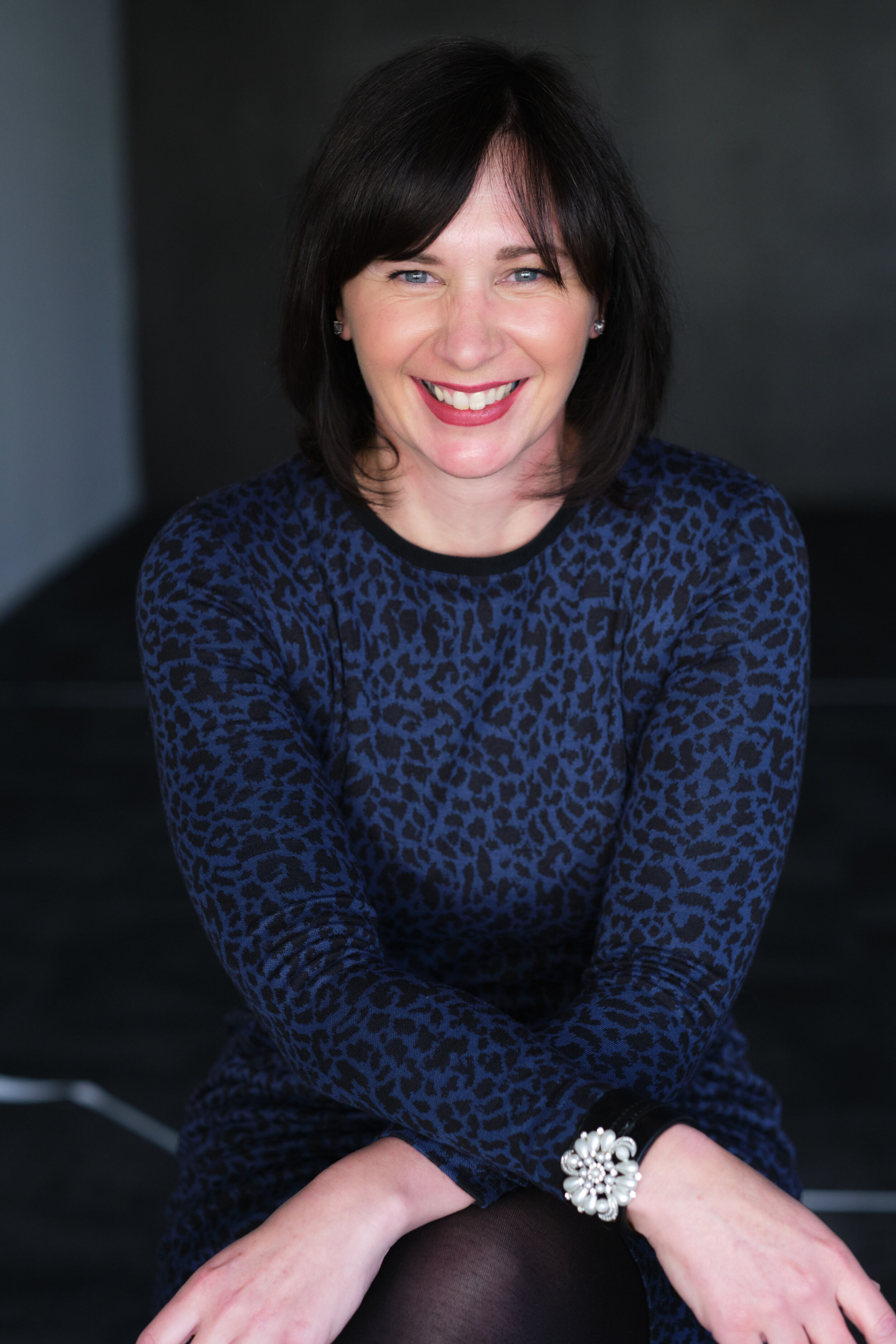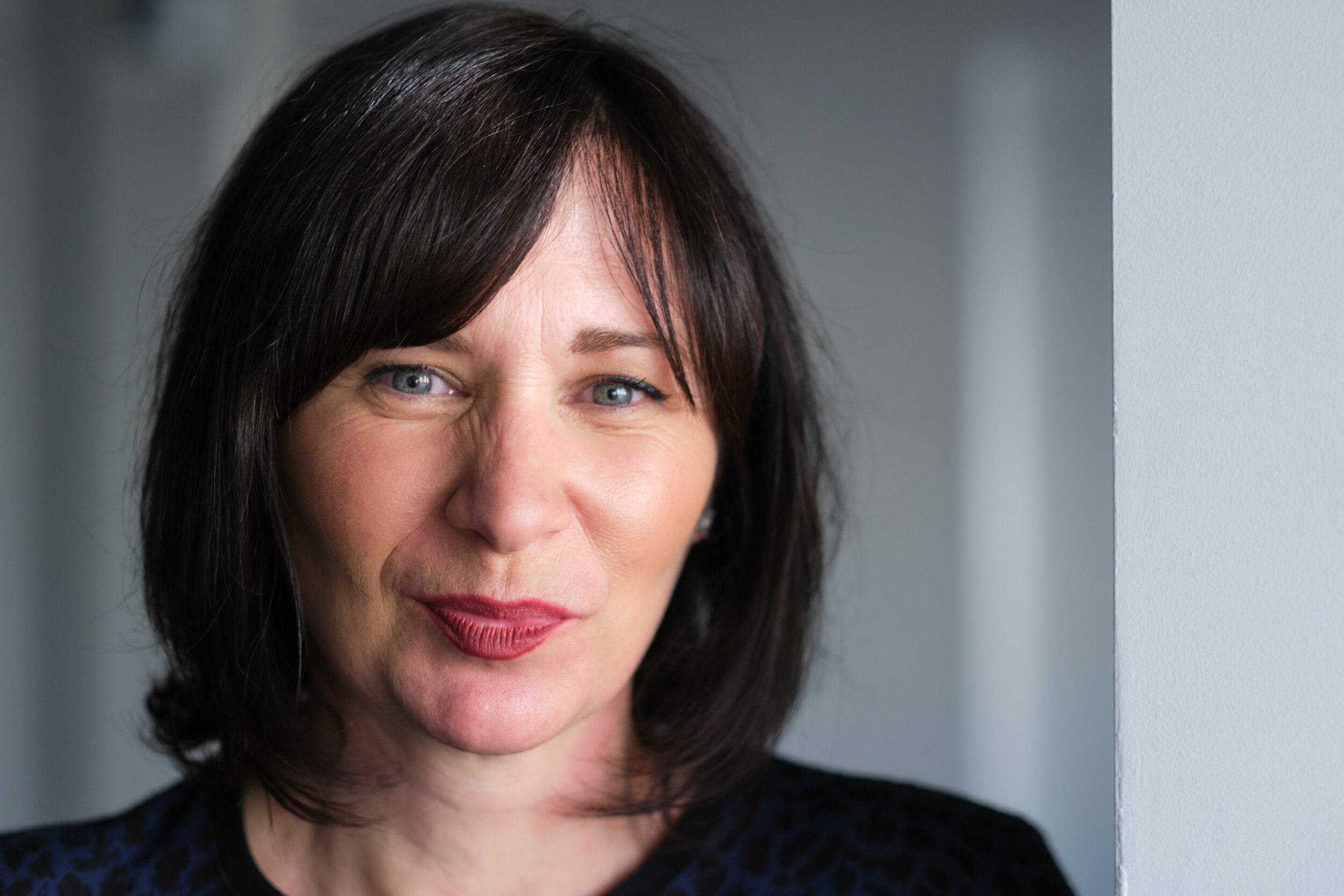Listen to the interview on your favourite podcast app: Apple Podcasts | Stitcher Radio | Spotify | Google
Introducing Melissa Gollan
Meet Melissa Gollan...
Mel is the sole founder of the world disrupting FinTech Startup, RIP Global.
During her past career in sales, Mel learned to loathe expenses. Keeping track, sorting, submitting and looking for missing receipts turned into the pain point that made her think, ‘there must be a better way?’ RIP Global is a contactless payment and expensing system, boasting 100% compliance while enabling customers to never handle receipts again.
Mel has successfully raised several rounds of funding from investors in New Zealand and the United States. She has big goals to take RIP Global world wide. Her US venture capital investors are certainly a great indication of RIP Global’s potential and Mel’s largest customer to date just happens to be the New Zealand Government.
What was your vision when you first started your venture?
My vision was to save people from the boring tasks of processing and tracking receipts. RIP Global is about connecting the payment with the purchase data in a way that has the customer doing absolutely nothing. This is how I want to do it.
Every expensing solution in the world has a 50% fail rate. Relying on users to photograph and upload receipts. Nobody wants to do that, so don’t. That’s what we’re saying.
Those who use accounting systems such as Xero, MYOB etc, we can import their different account/expense codes automatically.
Some people don't want to code or comment on their expenses, and they don't have to. But we do offer the opportunity to pre-code and justify each of their purchases.
A smartphone app is used for a client to log expenses and add instructions or comments about their purchase. Then a dynamically created QR code is displayed and then scanned at the til. It's a little like using a loyalty card. Once scanned and payment has been made the client can just walk away. Their expense report is pre-populated with all the receipt data, the code and the justification.
So we're offering 100% compliance and clients never have to touch a receipt again.
It saves phone calls between people and their accounts office. No more missing receipts at the end of the month.
This is very useful for those people passing on expenses to their clients or contractors. Disbursement invoices for these expenses can be created and sent automatically. This can save a lot of time. Plus, with 100% transparency, this makes their clients feel good.
I’ve been working on RIP Global for nine years now. From the idea phase, being up to my eyebrows in receipts, developing the process, protecting our intellectual property. We’re committed to building a massive financial technology company out of New Zealand.
Patents and IP are critical to us. We have a great relationship with Jameson Wells, a boutique intellectual property law firm. They are especially good at protecting property. You can’t get software patents. But the process behind the software can be patented. The process behind RIP Global has been patented in the US. This has been critical for raising capital.
At the beginning, I had a Sales and Marketing consultancy while developing RIP Global. With that and some contracting work for Plunket, I didn't draw a salary from the business for the first five years. Then, after moving to Wellington, I started to pay myself enough of a salary to support myself and my two young boys.
How did you deal with early setbacks?
When you do anything new, you're going to get setbacks. So don't sweat it, there's always a workaround.
In the beginning, I was a little naive. I took what I thought was obviously a banking tool to a couple of the banks and got the runaround. I’m still waiting for a Head of Innovation from one bank to call me back from four and a half years ago.
Banks have long deal cycles. When you're a startup, you have limited time, money and resources. You can't be flying around to have 50,000 coffee meetings. You need results and signed commitments.
We were supposed to pilot our technology with a bank. But, the deal ended up being blocked. This had me wonder how I going to continue without a big client. I knew that we were building something huge. I just had to carry on, one step at a time.
Ultimately your customers are who matter. If you built a great product, present it well, you’ll get the customers. All those other people become irrelevant.
We are building a globally scalable technology company and we want big customers. The reality is that New Zealand is a tiny little country. We have small businesses compared to the US, UK or Asian markets. The New Zealand government, as a business, would be our biggest, most internationally respected and the best local customer for RIP Global. An obvious choice that would see us scale fast globally.
Everybody told me I was crazy. So I ran a second sales strategy, targeting Small Medium Enterprises also.
We've built the best product in the world. Nothing beats us in terms of efficiency and fraud elimination. As passionate New Zealander, I want our government to be using the best tools.
Our development team is based in New Zealand. All of our profits benefit New Zealand. We do have a couple of global shareholders, but we are a 75% Māori owned business.
What we're doing is groundbreaking. The broader benefits to New Zealand long-term are going to be enormous. The government has a responsibility to be considering us during their procurement activities.
The complexity of exports from New Zealand is on par with third world countries. We've really got to pull our finger out on that. Technology is complex and high value. It has high-value employees paying tax and spending in our community. It's time for the rubber to hit the road.
Raising money as a New Zealand based technology company is hard work. The best place to start is with the people that love you. Friends, family, those who understand the problem being solved. As we've got traction and grown, we've been able to approach bigger investors. Recently we just received a follow on investment. We raised $5 million ($3 million pre-revenue), out of the United States.
That's really important for us. With the level of support we receive from Callaghan Innovation and New Zealand Trade and Enterprise our American investors are seeing that our government and agencies are right behind us. It shows that New Zealand is a good place to invest. We build technology at a third of the cost compared to the US. so not only are we doing something in terms of yet, we're building great tech that we're going to export, but we're also facilitating and bringing the attention of American investment into, and to New Zealand technology.
The New Zealand tech scene, we're very kiwish, apologetic when talking about money and don't want to overvalue something. But the reality is you want to raise your money to the highest valuation you can. You do have to justify it to retain equity in the business as a founder. But if you don’t put a global valuation on it, you won't be taken seriously. There's a lot of misinformation guiding young New Zealand tech startups suggesting to value yourself at $1 or $2 million. Why should you? If your addressable market is massive and your product is globally scalable, then raise money at valuations similar to the United States. Do your homework, own it and have the confidence to demand that valuation level.
There's a science and art to figuring out your valuation level.
We have an expensing app, so we looked at all of the other expensing apps around the world. How much did they raise? What’re their valuations? What's their market share? Then you take stock of your intellectual property. This increases the value of your company. How much market do you think you’ll capture? What’s your revenue projections and then do a multiple of that. Then there's finding the right investors. The ones who believe in and will back you.
I'm the sole founder. 72% of female founders globally get venture capitalists investment. They oftentimes return a 75% better result than the boys. My goal is to inspire other women founders to be aggressive, go out there and really own this space.
Was there a time that you wanted to give up?
Honestly, I’ve never wanted to give up.
One of my advisors once shared, the thing keeping him awake night was worrying about having to get ‘a real job’. As a founder, you don’t always sleep very well. You do every job and you’re responsible for all the people working for you. There’s a huge amount of pressure. But I can’t imagine doing anything else. I’m purpose-built for this business.
Were there any traps that you fell into?
No, I’m old, so that helps. But I would say there are a lot of traps.
Taking advice. Everyone has an opinion. But, nobody knows your business better than you. Don't forget that. Do what you think is right and back yourself to avoid traps such as under evaluations or people looking to take advantage for themselves.
“The Wellington Hustle Interview Project is brought to you by timson.co.
Headshots and Story Brand Photos. Show off your vibe and attract your tribe.”
What inspires and motivates you?
This product, RIP Global, and not wanting to touch another receipt again.
I’m super passionate about growing New Zealand’s technology space, role modelling for young women and encouraging Māori engagement in technology as a career choice.
I won the MWDI Māori Business Woman Award for Innovation in 2019. I'm really proud that I'm of Māori descent. I come from a family where my mother left school at 13. She didn't own her first pair of shoes until she was 10. I have a framed photo of five generations of women from my family. All these women have working hands. I’m the first generation of women who doesn’t. That’s super motivating. I'm here to shift the needle.
I’m particularly interested in young women in technology. When I looked to hire my developers, I found lots of boys, but no women. I’ve decided to actively promote technology. I’m running a career conference for young women between the ages of 12 and 18 at Scott's College this December (2020). There will be Māori women working in technology from all over New Zealand speaking. I want to show off and demystify the roles in technology. So that's exciting.
Can you describe a breakthrough that you're particularly proud of?
Winning our first government contract was huge! It really elevated the company. It took a long time. Socialising the idea, validating the company, working through due diligence and getting approval.
Securing investment out of the US was another huge breakthrough. I attended the Select USA Summit with New Zealand’s US ambassador, Scott Brown last year. I’m committed our product being in the US because it's such a massive market.
At the summit, I was introduced to some local investors. I visited their office once and came away with a cheque. They also follow on invested because of our progress. Typically founders make huge promises to raise money and don't deliver. So, to get an existing investor to give us more money means we’re doing something right.
What do you see as being your biggest lesson?
I've learned a lot of lessons and made many mistakes along the way.
My biggest lesson, learning about the technology behind RIP Global. In the beginning, I didn't want to know or care about my product’s technology stack. I do now. I need to know what's scalable and what isn't. This led to a few mistakes with my early hires, wasting money.
Everything takes five times longer than you think. Running out of money is the most critical mistake a founder can make. I’m constantly raising money. I operate with a lot of confidence and don't raise too much money before its needed. Many founders will raise five years of runway, then manage it poorly.
I haven't had problems raising money. I want big upswings of value for my shareholders. I’ll wait until a milestone is achieved, increasing the value of the business before raising more.
Mental health issues around founders over consuming of drugs and alcohol can be a crutch. So look after yourself because it’s a marathon, not a sprint. You are what your investors are investing in. The founder, not the company or technology.
I'm a bit of an athlete, getting up at 5 am to workout. Physical activity is so important. It gives me clarity and time to think.
Trying to sleep is the biggest challenge. I always have great ideas at 3 am and I've been known to bake in the middle of the night. My kids are always stoked with Afghan biscuits for breakfast.
Has your vision always been clear and how has it evolved?
Yes!
It's become larger and more exciting. But, I've always known what I wanted to achieve. RIP Global as been a global proposition right from the start. What I'm doing is difficult. Mentally, physically and emotionally.
I have to give it 100%. There's no point playing small.
What would you do differently if you had to start again from scratch?
I don't think I would. I’d higher the same Chief Technology Officer, Jesse Whitham. He's great.
RIP Global is a very whanau orientated and I cook brunch for the team weekly.
There's 12 of us now. I’m in the process of hiring. We'll be three times the size by the middle of next year and we’ll international offices also. I’ve had some really exciting interviews. Due to COVID, loads of talented New Zealands are coming home from overseas. Thats amazing.
As a company, we’re very clear. We're hunters, not farmers. This company does two things, build technology and sell subscriptions. Everyone’s on the sales team, including the developers. That's the focus of the business.
Connect with Mel
If you have enjoyed this article and want to start a conversation with Mel, you can reach out on:
Website: ripglobal.com
LinkedIn: linkedin.com/in/melissa-gollan-a21b2041/
Please don’t forget to tell Mel that I sent you.
Interview and photography by Wellington Headshots, Tim Morrison (all rights reserved)









